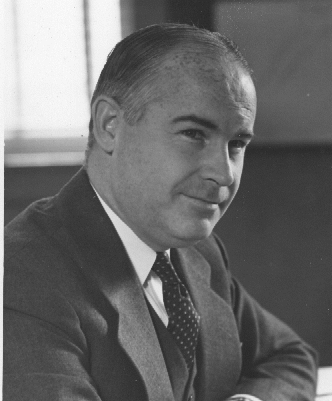Joseph L. Fay

Born on December 8, 1897 in Brookline, Massachusetts, Joe Fay entered federal service in 1931 as a Technical Advisor and Staff Accountant for the Department of Agriculture. In that position he contributed to setting up and supervising the punch-card check subsidy payments to farmers. This was, at the time, the largest punch-card accounting system and first major use by the Government of punch-card checks. When the Act under which it operated was declared unconstitutional, Mr. Fay helped to close out the Administration's affairs and then transferred to the newly established Social Security Board as a technical advisor on machine methods.
Beginning in 1936, Mr. Fay worked in setting up the requisites for the recordkeeping system under the original Social Security Act. It was his foresight and expertise in accountancy that led to the devising of a machine accounting system that was sufficiently flexible to meet all the changes required of it as the basic act was constantly expanded to increase coverage, extend insurance benefits to survivors and eventually to disabled individuals and their dependents. Later that year Mr. Fay was placed in charge of the entire accounting operation, during which some 33 million individuals were enumerated in the Board's first year of operation.
In the years that followed, Mr. Fay's leadership stimulated many significant developments in the production of new types of microfilm cameras, readers, and printers. In 1956, he directed the immense task of converting the massive punch card recordkeeping system to a computerized system. It was through his leadership that Social Security gained national recognition for employing the most advanced technology for recordkeeping.
As his federal career drew to a close in December 1966, Mr. Fay was justly proud of the fact that the systems he helped develop were in use the world over.
Mr. Fay died in Baltimore on May 27, 1975.